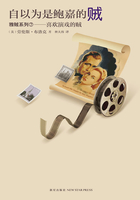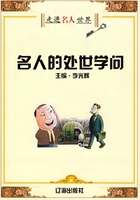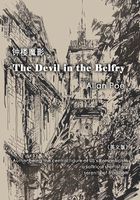"My life goes on like clockwork, and I am fixed on the spot where I shall end it."Letter to Captain Fitz-Roy, October, 1846.
[With the view of giving in the following chapters a connected account of the growth of the 'Origin of Species,' I have taken the more important letters bearing on that subject out of their proper chronological position here, and placed them with the rest of the correspondence bearing on the same subject; so that in the present group of letters we only get occasional hints of the growth of my father's views, and we may suppose ourselves to be looking at his life, as it might have been looked at by those who had no knowledge of the quiet development of his theory of evolution during this period.
On September 14, 1842, my father left London with his family and settled at Down. (I must not omit to mention a member of the household who accompanied him. This was his butler, Joseph Parslow, who remained in the family, a valued friend and servant, for forty years, and became as Sir Joseph Hooker once remarked to me, "an integral part of the family, and felt to be such by all visitors at the house.") In the Autobiographical chapter, his motives for taking this step in the country are briefly given.
He speaks of the attendance at scientific societies, and ordinary social duties, as suiting his health so "badly that we resolved to live in the country, which we both preferred and have never repented of." His intention of keeping up with scientific life in London is expressed in a letter to Fox (December, 1842):--"I hope by going up to town for a night every fortnight or three weeks, to keep up my communication with scientific men and my own zeal, and so not to turn into a complete Kentish hog."Visits to London of this kind were kept up for some years at the cost of much exertion on his part. I have often heard him speak of the wearisome drives of ten miles to or from Croydon or Sydenham--the nearest stations--with an old gardener acting as coachman, who drove with great caution and slowness up and down the many hills. In later years, all regular scientific intercourse with London became, as before mentioned, an impossibility.
The choice of Down was rather the result of despair than of actual preference; my father and mother were weary of house-hunting, and the attractive points about the place thus seemed to them to counterbalance its somewhat more obvious faults. It had at least one desideratum, namely quietness. Indeed it would have been difficult to find a more retired place so near to London. In 1842 a coach drive of some twenty miles was the only means of access to Down; and even now that railways have crept closer to it, it is singularly out of the world, with nothing to suggest the neighbourhood of London, unless it be the dull haze of smoke that sometimes clouds the sky. The village stands in an angle between two of the larger high-roads of the country, one leading to Tunbridge and the other to Westerham and Edenbridge. It is cut off from the Weald by a line of steep chalk hills on the south, and an abrupt hill, now smoothed down by a cutting and embankment, must formerly have been something of a barrier against encroachments from the side of London. In such a situation, a village, communicating with the main lines of traffic, only by stony tortuous lanes, may well have been enabled to preserve its retired character. Nor is it hard to believe in the smugglers and their strings of pack-horses making their way up from the lawless old villages of the Weald, of which the memory still existed when my father settled in Down. The village stands on solitary upland country, 500 to 600 feet above the sea,--a country with little natural beauty, but possessing a certain charm in the shaws, or straggling strips of wood, capping the chalky banks and looking down upon the quiet ploughed lands of the valleys. The village, of three or four hundred inhabitants, consists of three small streets of cottages meeting in front of the little flint-built church. It is a place where new-comers are seldom seen, and the names occurring far back in the old church registers are still well-known in the village. The smock-frock is not yet quite extinct, though chiefly used as a ceremonial dress by the "bearers" at funerals: but as a boy I remember the purple or green smocks of the men at church.
The house stands a quarter of a mile from the village, and is built, like so many houses of the last century, as near as possible to the road--a narrow lane winding away to the Westerham high-road. In 1842, it was dull and unattractive enough: a square brick building of three storeys, covered with shabby whitewash and hanging tiles. The garden had none of the shrubberies or walls that now give shelter; it was overlooked from the lane, and was open, bleak, and desolate. One of my father's first undertakings was to lower the lane by about two feet, and to build a flint wall along that part of it which bordered the garden. The earth thus excavated was used in making banks and mounds round the lawn: these were planted with evergreens, which now give to the garden its retired and sheltered character.
The house was made to look neater by being covered with stucco, but the chief improvement effected was the building of a large bow extending up through three storeys. This bow became covered with a tangle of creepers, and pleasantly varied the south side of the house. The drawing-room, with its verandah opening into the garden, as well as the study in which my father worked during the later years of his life, were added at subsequent dates.
Eighteen acres of land were sold with the house, of which twelve acres on the south side of the house formed a pleasant field, scattered with fair-sized oaks and ashes. From this field a strip was cut off and converted into a kitchen garden, in which the experimental plot of ground was situated, and where the greenhouses were ultimately put up.















